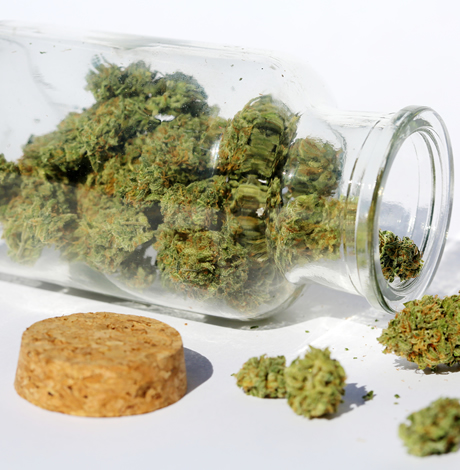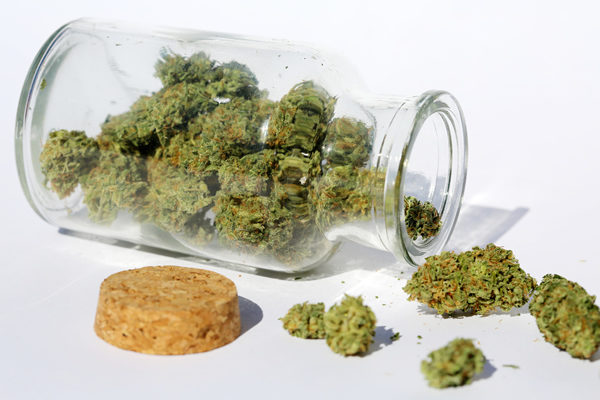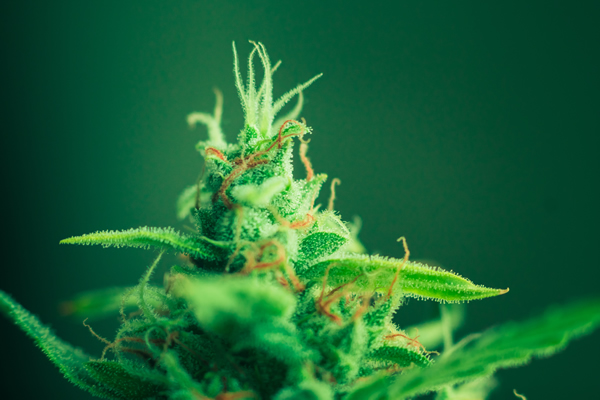Cannabis Culture
Cannabis Culture
THC levels not correlated with driver impairment: study


THC levels not correlated with driver impairment: study
The presence of THC in blood is not a consistent predictor of either driver performance or impairment, according to the conclusions of a new Congressional Research Service report assessing cannabis and psychomotor performance.
The report acknowledges: “Research studies have been unable to consistently correlate levels of marijuana consumption, or THC in a person’s body, and levels of impairment. Thus, some researchers, and the National Highway Traffic Safety Administration, have observed that using a measure of THC as evidence of a driver’s impairment is not supported by scientific evidence to date.”
It further reports that data is “conflicting” with regard to whether marijuana usage plays a substantial role in traffic accidents, noting, “Levels of impairment that can be identified in laboratory settings may not have a significant impact in real world settings, where many variables affect the likelihood of a crash occurring.”
It concludes: “There is as yet no scientifically demonstrated correlation between levels of THC and degrees of impairment of driver performance, and epidemiological studies disagree as to whether marijuana use by a driver results in increased crash risk. … Based on current knowledge and enforcement capabilities, it is not possible to articulate a similarly simple level or rate of marijuana consumption and a corresponding effect on driving ability.”
The findings are consistent with prior studies by the National Highway Traffic Safety Administration and others reporting that the presence of THC in blood, particularly at low levels, is not consistently correlated with either psychomotor impairment or crash culpability.
Six states – Illinois, Montana, Nevada, Ohio, Pennsylvania, and Washington impose various per se limits for the presence of specific amounts of THC in blood while 12 states (Arizona, Delaware, Georgia, Illinois, Indiana, Iowa, Michigan, Oklahoma, Rhode Island, South Dakota Utah, and Wisconsin) impose zero tolerant per se standards. In those states, it is a criminal violation of the traffic safety laws to operate a motor vehicle with any detectable levels of THC in blood. Colorado law infers driver impairment in instances where THC is detected in blood at levels of 5ng/ml or higher.
Veterans substituting cannabis for alcohol, drugs
PALO ALTO, Calif. — Military veterans who participate in a state’s medical marijuana access program frequently substitute cannabis for alcohol and other controlled substances, according to data published in The American Journal of Drug and Alcohol Abuse.
A team of investigators from Palo Alto University in California, Harvard University, and the Perelman School of Medicine in Philadelphia surveyed marijuana use patterns in 93 U.S. military veterans participating in a medical cannabis collective.
Nearly 80 percent of respondents reported using cannabis “to treat both physical and mental health symptoms.” Respondents were most likely to report consuming cannabis therapeutically to mitigate symptoms of chronic pain (69 percent), anxiety (66 percent), post-traumatic stress (59 percent), and depression (56 percent).
More than 60 percent of respondents said that they consumed cannabis as a substitute for other illicit or licit substances, particularly alcohol. Nearly half of all respondents said that they use medical cannabis in place of other prescription medications.
Authors concluded, “The current study also confirms the findings of previous studies that have documented a trend in substitution behavior, where cannabis is substituted for other drugs, which, if associated with reduced harm, could be beneficial for overall health.”
Nevada bars employers from bias against cannabis users
CARSON CITY, Nev. — Democratic Gov. Steve Sisolak has signed legislation into law prohibiting certain employers from refusing to hire workers because they tested positive for cannabis on a pre-employment drug screen. The new law takes effect on Jan. 1, 2020.
Assembly Bill 132 makes it “unlawful for any employer in [Nevada] to fail or refuse to hire a prospective employee because the prospective employee submitted to a screening test and the results of the screening test indicate the presence of marijuana.”
The law is not applicable to prospective employees seeking certain safety sensitive positions, such as those seeking employment as firefighters, emergency medical technicians, or federally licensed drivers.
“This is a victory for both cannabis consumers and Nevada’s economy,” said Nevada NORML Director Madisen Saglibene. “Just as someone would not lose their job on a Monday for a cocktail they consumed the previous Friday, it is critical to protect the rights and dignity of individuals who choose to enjoy marijuana.”
Earlier this year, New York City lawmakers enacted municipal legislation barring non-safety sensitive employers from administering marijuana drug tests to prospective employees.
Urinalysis drug screening, which is most commonly utilized by employers, detects the presence of inactive marijuana metabolites (breakdown products). The residual presence of these compounds may be detectable in urine for several weeks or even months following cannabis abstinence.
The governor also signed legislation into law this session facilitating the expungement of prior marijuana convictions, expanding the state’s medical cannabis access program, prohibiting the courts from denying child custody or visitation solely based upon a parent’s medical marijuana patient status, and encouraging banking institutions to work with licensed marijuana businesses and to process financial transactions.
Cannabis Culture news in the Blade is provided in partnership with NORML. Visit norml.org for more information.

Democratic Gov. Michelle Lujan Grisham earlier this month signed two separate measures into law amending the state’s marijuana policies. The first measure (House Bill 2) legalizes and regulates marijuana possession, production, and sales for adults. The second measure (Senate Bill 2) facilitates the automatic review and expungement of the records of those convicted of low-level marijuana offenses.
Lawmakers approved both bills during a special legislative session demanded by Gov. Lujan Grisham, who had been a vocal proponent of the reforms.
NORML State Policies Manager Carly Wolf said: “This is a day to celebrate! New Mexico will greatly benefit from this new revenue stream and the creation of thousands of jobs. Most notably though, legalization will spare thousands of otherwise law-abiding residents from arrest and a criminal record, and the state’s new expungement law will help provide relief to many who are suffering from the stigma and other collateral consequences associated with a prior marijuana conviction.”
The adult-use measure (House Bill 2) permits those ages 21 and older to legally purchase up to two ounces of marijuana and/or up to 16 grams of cannabis extract from licensed retailers. It also permits adults to home-cultivate up to six mature plants for their own personal use. Retail sales would begin by April 2022.
The expungement measure (Senate Bill 2) stipulates that those with past convictions for offenses made legal under this act are eligible for automatic expungement of their records. Those currently incarcerated for such offenses are eligible for a dismissal of their sentence. It’s estimated that over 150,000 New Mexico residents are eligible for automatic expungement under this measure, according to the Department of Public Safety.
Cannabis Culture news in the Blade is provided in partnership with NORML. Visit norml.org for more information.
Cannabis Culture
Delaware cannabis activists take on corporate marijuana
Criticism from medical marijuana operators claimed that HB150 offers too many cultivation and retail licenses

As the country moves forward with sweeping changes in cannabis policy reform, locals in Delaware are tangling with corporate, multi-state medical marijuana permit holders to pass a bill for full legalization.
Adult-use activists and registered medical patients were stunned to hear opposing testimony from Delaware’s medical marijuana operators. Patients already deal with limited access and costly products. Now, many see the established industry voicing opposition as simply obstructing the progress of adult-use legislation. In response, some patients are now staging a boycott of the regulated dispensaries.
During the first committee hearing for HB150, Delaware’s adult-use bill, four of the state’s six currently licensed, multi-million dollar medical cannabis facilities offered negative testimony.
Zoë Patchell, executive director of Delaware CAN responded: “This market belongs to the long-time consumers, patients, and activists. We create the demand, we’ve been the ones driving the reform efforts, and we pay the prices at dispensaries. Cannabis is more than a market – cannabis is a community. These companies cannot reasonably fathom that we are going to purchase cannabis from any entity that has proven to put profits over patients. And now they seem willing to put consumers’ lives and freedom at risk just to hold out for an unfair advantage in the industry.”
These included publicly traded Columbia Care, “Fresh Delaware” aka CCRI, CannTech Research Inc., and the owner of EZY Venture aka “The Farm.”
They all went on record condemning HB150, and pushing a false narrative about oversupply. The core demand from the permit cartel was some protection for their private business interests with guaranteed adult-use licenses.
Criticism from the medical marijuana operators claimed that HB150 offers too many new cultivation and retail licenses, underlined by deep yet unfounded fears that the new competition would put their companies out of business.
Patchell noted, “We are not going to sit back while multi-state corporate entities, that already monopolize East Coast medical markets, work to undermine our social equity and micro-license provisions.”
Cannabis Culture news in the Blade is provided in partnership with NORML. Visit norml.org for more information.
Cannabis Culture
Virginia marijuana legalization takes effect July 1
Adult possession of cannabis up to one ounce without penalty

Following legislative approval of Democratic Gov. Ralph Northam’s amendments to Senate Bill 1406 and House Bill 2312, Virginia became the first southern state to legalize the possession and use of marijuana by adults.
Senate Bill 1406, introduced by Sen. Adam Ebbin (D-30) and Senate President Pro Tempore Senator Louise Lucas (D-18), and House Bill 2312, patroned by House Majority Leader Delegate Charniele Herring (D-46), establish a statutory timeline for the legalization of the commercial marijuana market in Virginia. The measure also permits for the personal possession and cultivation of cannabis by those ages 21 or older.
Last week, Gov. Northam recommended changes to the legislation to permit the personal use provisions of the law to take effect on July 1, 2021 rather than on January 1, 2024, the enactment date initially approved by lawmakers. A majority of the legislature concurred with that change.
Therefore, beginning July 1, 2021, adults will be permitted to possess up to one ounce of marijuana and to cultivate up to four cannabis plants per household without penalty.
The timeline by which state regulators have to enact provisions licensing commercial cannabis production and sales remains July 1, 2024.
Commenting on final passage, NORML Development Director Jenn Michelle Pedini, who also serves as executive director of Virginia NORML, said: “This is an incredible victory for Virginia. Legalization will bring an end to the thousands of low-level marijuana infractions occurring annually in the Commonwealth — ending a discriminatory practice that far too often targets Virginians who are young, poor, and people of color.”
Majority Leader Charniele Herring added: “It is a huge day for equity in the Commonwealth. Virginia is now the first state in the South to legalize recreational marijuana use, and I am so proud to have been able to carry this monumental legislation.”
Sen. Ebbin said, “The passage of SB1406 caps off years of struggle to reform our broken and outdated marijuana laws and begins the deliberate steps to repeal the harms of the failed prohibition. I am thankful to NORML, the governor, and my colleagues for moving this 283 bill from inception to passage over the last four months, and look forward to continuing to partner with them to establish a regulated, equity focused, adult-use marketplace in the coming years.”
Newly released statewide polling data finds that 68 percent of registered voters in Virginia, including majorities of Democrats and Republicans, support legalizing marijuana for adults.
Additional amendments added by Gov. Northam will allow the sealing of records related to crimes involving the misdemeanor possession of marijuana with the intent to distribute. Those records will begin to be sealed starting on July 1, 2021. Separate legislation enacted in 2020 previously sealed records related to misdemeanor marijuana possession.
Records specific to the simple possession of marijuana and/or misdemeanor possession with intent to distribute records will be automatically expunged no later than 2025. Those with records specific to crimes involving the felony possession of marijuana with the intent to distribute may begin to petition the courts for an expounging of their records in 2025.
The bill also allows for the re-sentencing of individuals currently incarcerated for marijuana-related offenses. The measure permits those individuals to have a hearing before the court that originally sentenced them, with legal counsel provided for indigent individuals. However, this portion of the bill must be reenacted in 2022.
The legislation also establishes an independent agency, the Virginia Cannabis Control Authority, to oversee the establishment of regulations that will govern the adult-use market. This agency is set to convene this summer. The remainder of the 300-page bill, which details the regulatory and market structure and social equity provisions, is subject to a second review and vote by the Assembly next year.
Cannabis Culture news in the Blade is provided in partnership with NORML. Visit norml.org for more information.
-

 Virginia2 days ago
Virginia2 days agoDefying trends, new LGBTQ center opens in rural Winchester, Va.
-

 South Africa5 days ago
South Africa5 days agoLesbian feminist becomes South African MP
-

 Travel3 days ago
Travel3 days agoManchester is vibrant tapestry of culture, history, and Pride
-

 Opinions3 days ago
Opinions3 days agoUSAID’s demise: America’s global betrayal of trust with LGBTQ people












